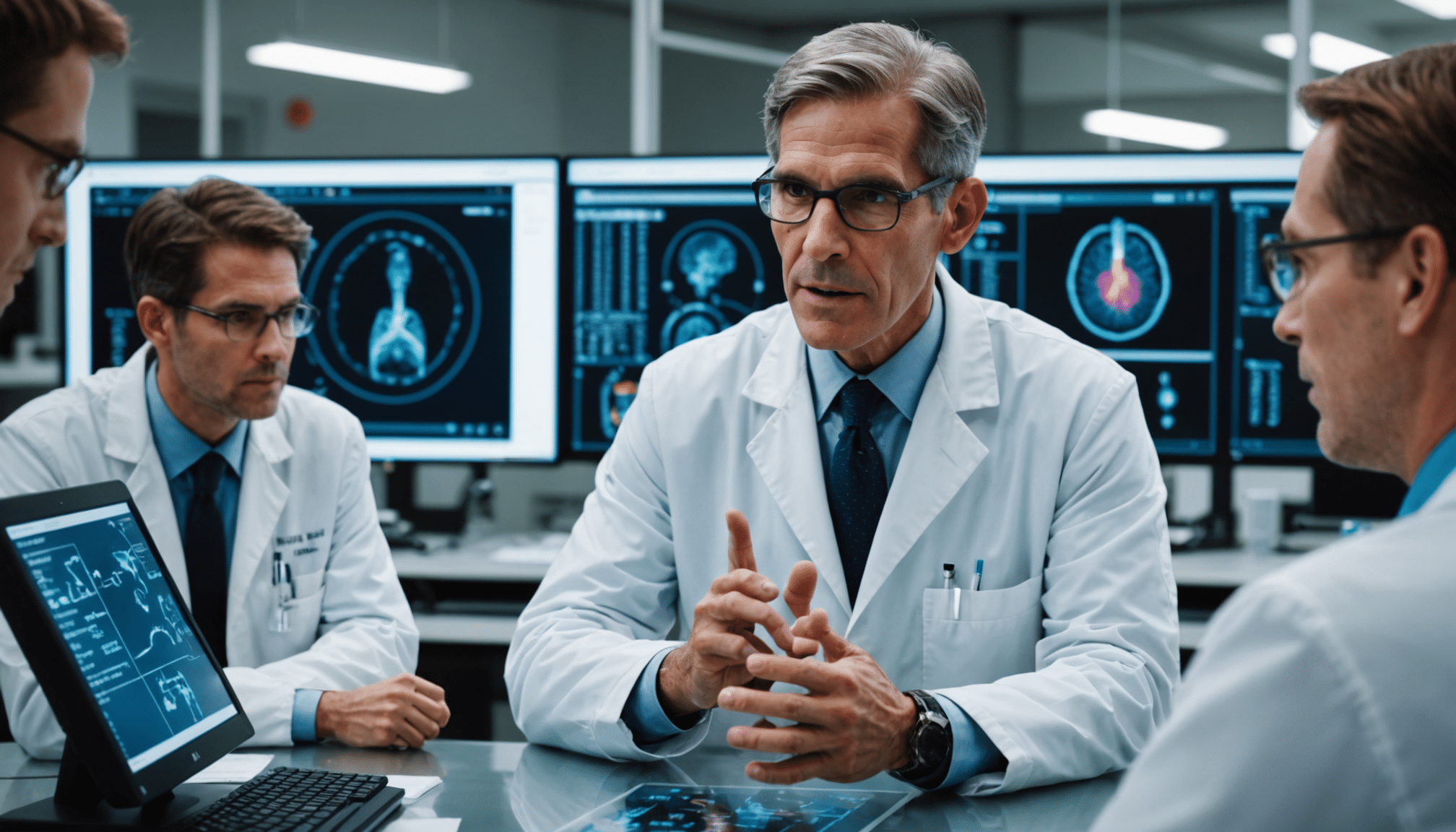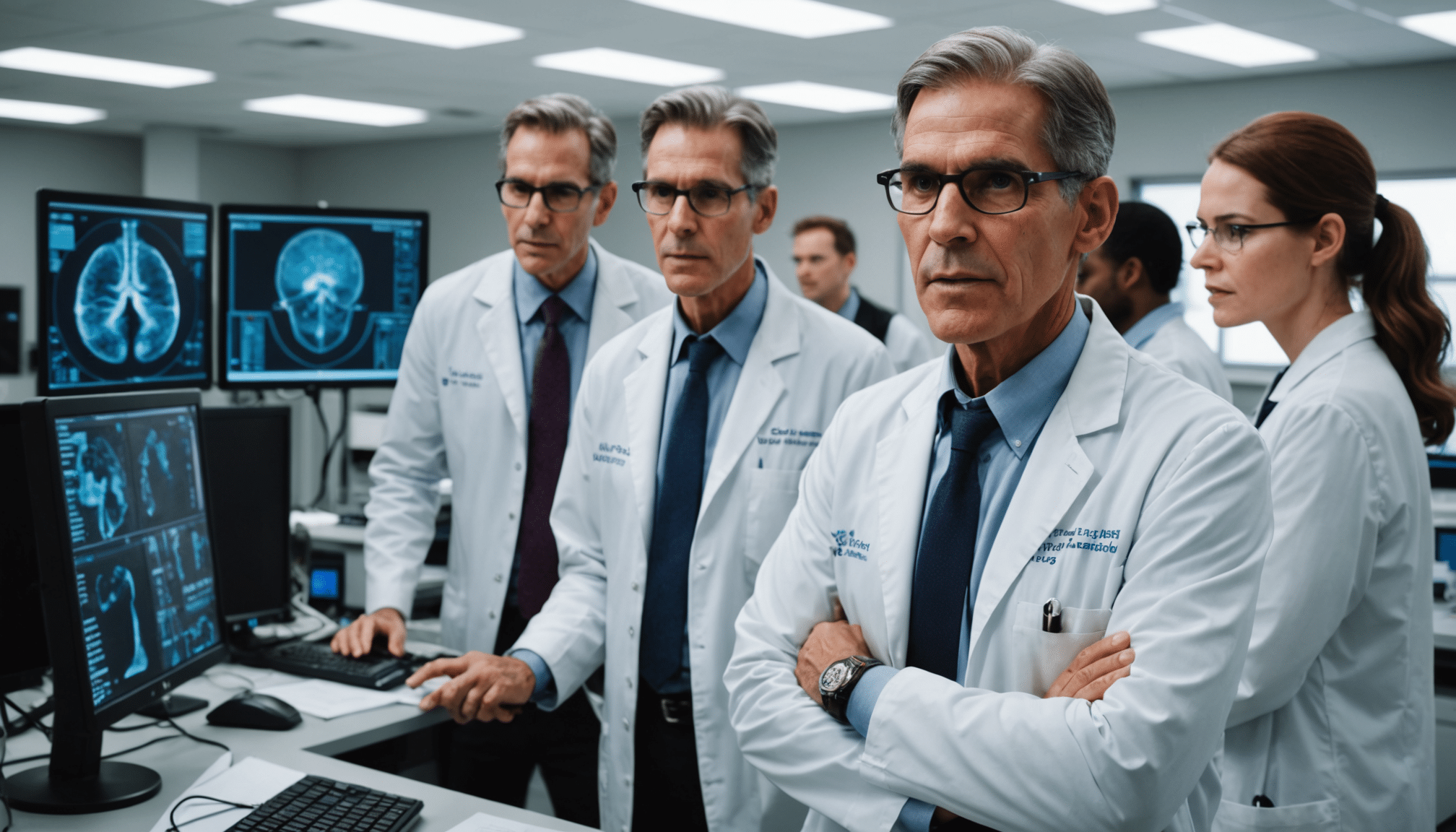In the rapidly evolving field of health, Dr. Eric Topol, renowned cardiologist and researcher, has recently examined the implications of generative artificial intelligence in the clinical setting. Despite initial results that seem encouraging, he emphasizes that the reality of medical practices still presents major challenges. At the heart of these reflections is the necessity to assess the performance of AI systems compared to that of healthcare professionals, as well as the biases and obstacles that could hinder their effective integration into daily care.
Dr. Eric Topol, cardiologist and director of the Scripps Research Translational Institute, is at the center of the debates on the impact of artificial intelligence (AI) in the medical field. At a recent conference, he pointed out that while preliminary data on generative AI seem promising, their application in real clinical situations presents many challenges.
Topol noted that some studies show that AI outperforms physicians in certain tasks, but these results often come from controlled environments, far removed from real-world conditions. He highlighted that physicians’ biases against automation and their unfamiliarity with AI tools could influence these comparisons. Moreover, he insisted that studies need to be conducted on real patient data to draw valid conclusions about the effectiveness of AI in daily practice.
Despite these concerns, some applications such as clinical documentation are already showing promising potential to alleviate the administrative burden on practitioners.

Dr. Eric Topol and the Issues of Generative AI in Medicine
Dr. Eric Topol, cardiologist and founder of the Scripps Translational Research Institute, is recognized for his leadership role in the field of health innovation. In his recent speeches, he addressed the impact of generative AI on clinical practices. He highlighted studies showing that this technology, while impressive on paper, still needs to face real-world conditions where its effectiveness is to be tested. The preliminary results reveal concerning biases as well as incorrect use of AI tools, raising the question of optimizing these technologies.
Current Studies on Generative AI
In his analyses, Dr. Topol mentioned that recent research illustrates a promising early stage of AI in certain clinical tests, with scores surpassing those of physicians. A published study revealed that the OpenAI tool, ChatGPT, achieves a diagnostic accuracy of 90%. In comparison, physicians using this tool obtained a rate of 76%, while those relying solely on traditional resources achieved 74% accuracy. These results raise questions about the actual performance of physicians when AI is involved, shedding light on the challenges of a rapidly evolving medical world.
Challenges of Integrating AI into Clinical Practice
However, Dr. Topol remains cautious about interpreting these promising results. He emphasizes that the studies conducted are often carried out in controlled environments, far from the actual challenges of daily medical practice. Many of these evaluations do not take into account data from real patients, which could influence the results. Currently, only 5% of research on language models in health comes from authentic cases. Thus, the conclusions drawn may not reflect what the impact of AI would be in daily care, calling for caution in compressing this technology to a real clinical context.
Dr. Eric Topol, an eminent cardiologist and founder of the Scripps Research Translational Institute, has highlighted the challenges and opportunities associated with the rise of generative artificial intelligence in the health field. Although numerous studies announce promising results, he insists on the necessity not to rush to conclusions. Indeed, the performance of AI in controlled environments does not always translate into successes in real clinical contexts, raising fundamental questions about the application of these machine learning tools to real patients.
Recent research indicating that AI could surpass physicians in certain diagnostic aspects emphasizes the idea that technology can serve as a complementary tool while redefining the practitioner’s role. However, Topol points out that the fidelity of the results obtained in controlled trials is often undermined when considering the diversity and unpredictability of clinical situations that physicians encounter every day. The majority of studies are based on simulated data, thus distancing the analysis from practical reality.
Another fundamental aspect highlighted by Dr. Topol is the cognitive resistance of some healthcare professionals to automation. This reluctance, coupled with a lack of training on the optimal use of these AI tools, could hinder their real integration into current medical practices. Ultimately, although AI has the potential to transform healthcare by improving productivity and quality of care, significant obstacles remain before it can truly supplant or even match human expertise in daily medical practice.














